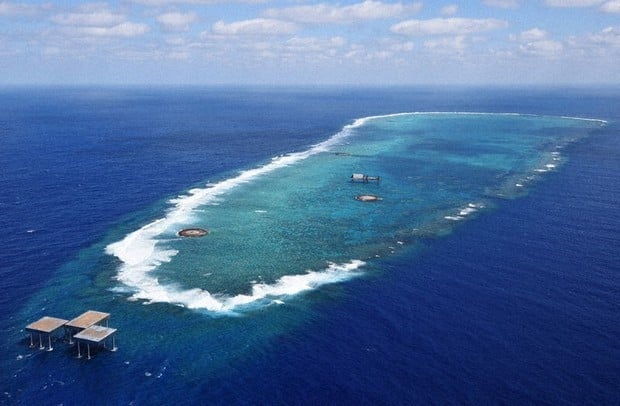Japan has formally protested against China for conducting unauthorized maritime research within its exclusive economic zone (EEZ) near the Okinotori Atoll, a remote and strategically significant coral reef in the Philippine Sea. The protest follows the detection of a Chinese survey vessel operating approximately 270 kilometers east of the atoll, allegedly extending a wire into Japan’s claimed EEZ.
Japanese government spokesperson Yoshimasa Hayashi stated that the activity was detected by the Japan Coast Guard on Monday and is considered a violation of Japan’s sovereign rights under the United Nations Convention on the Law of the Sea (UNCLOS). Coastal states are granted exclusive rights to conduct scientific research and exploit natural resources within their 230-mile EEZ under the convention, and foreign entities are required to obtain prior consent.
Japan maintains that Okinotori Atoll qualifies as an island under UNCLOS, thus legitimizing its surrounding EEZ claim. However, China disputes this classification, arguing that Okinotori is a collection of uninhabitable rocks rather than a true island capable of sustaining human life or economic activity. Based on this interpretation, Beijing asserts it is not obligated to seek Japan’s permission for research in the area.
Okinotori, Japan’s southernmost territory, holds immense strategic value in the Indo-Pacific. To reinforce its claim, Japan has undertaken environmental restoration efforts, including coral planting and structural fortification, aimed at preventing erosion and maintaining its status under international law. The atoll’s location, midway between Taiwan and Guam, further adds to its geopolitical importance.
This development adds to a growing list of maritime disputes between the two Asian powers. Previous confrontations have centered around the contested Senkaku/Diaoyu Islands in the East China Sea. More broadly, China’s expansive maritime activities across the Pacific and South China Sea continue to generate friction with regional states and international stakeholders concerned about freedom of navigation and adherence to global norms.
Japan’s latest protest serves as a reminder of the ongoing legal and geopolitical complexities in the Indo-Pacific. With rival interpretations of UNCLOS and competing strategic interests, the incident at Okinotori highlights the fragile equilibrium shaping maritime security and governance in one of the world’s most contested waters.













